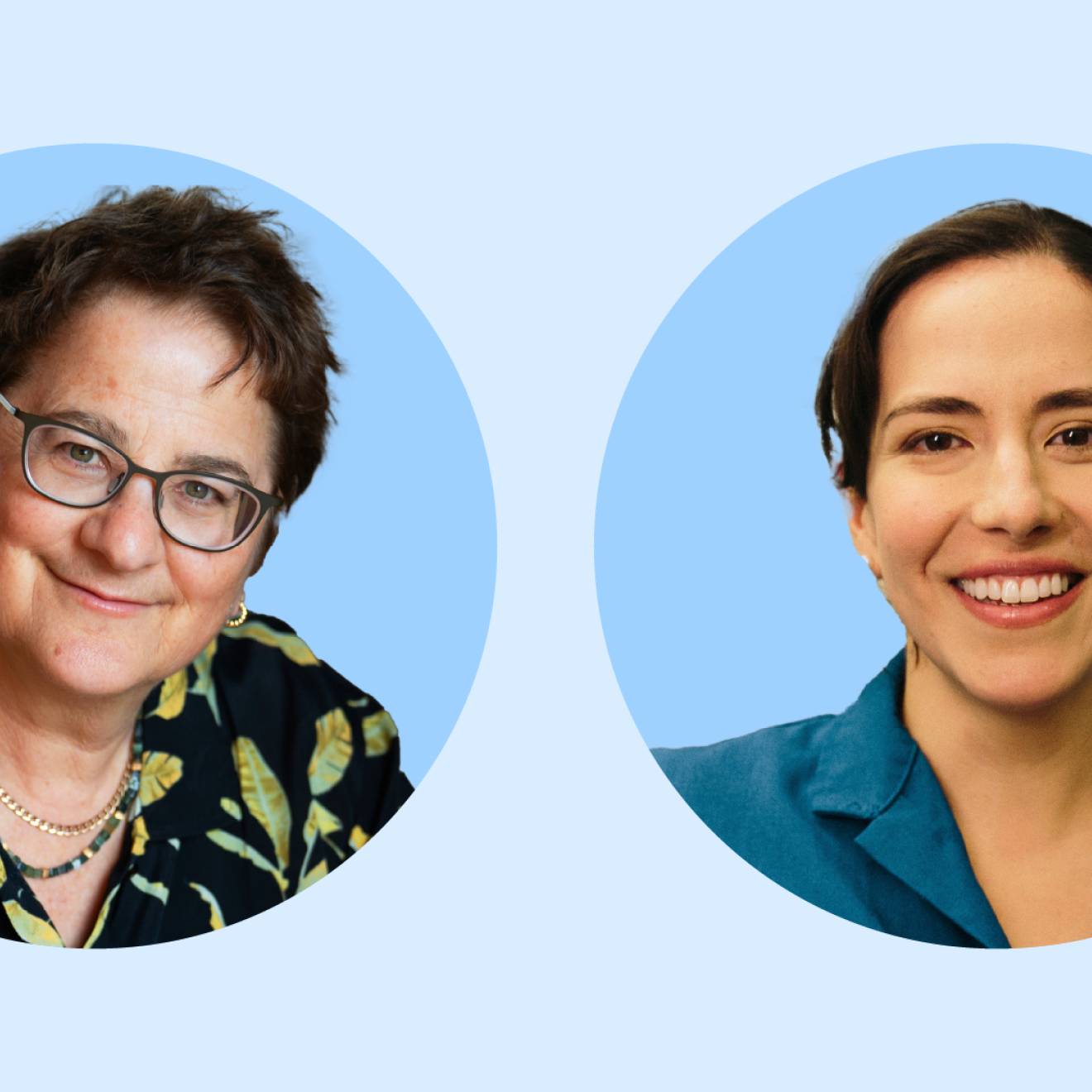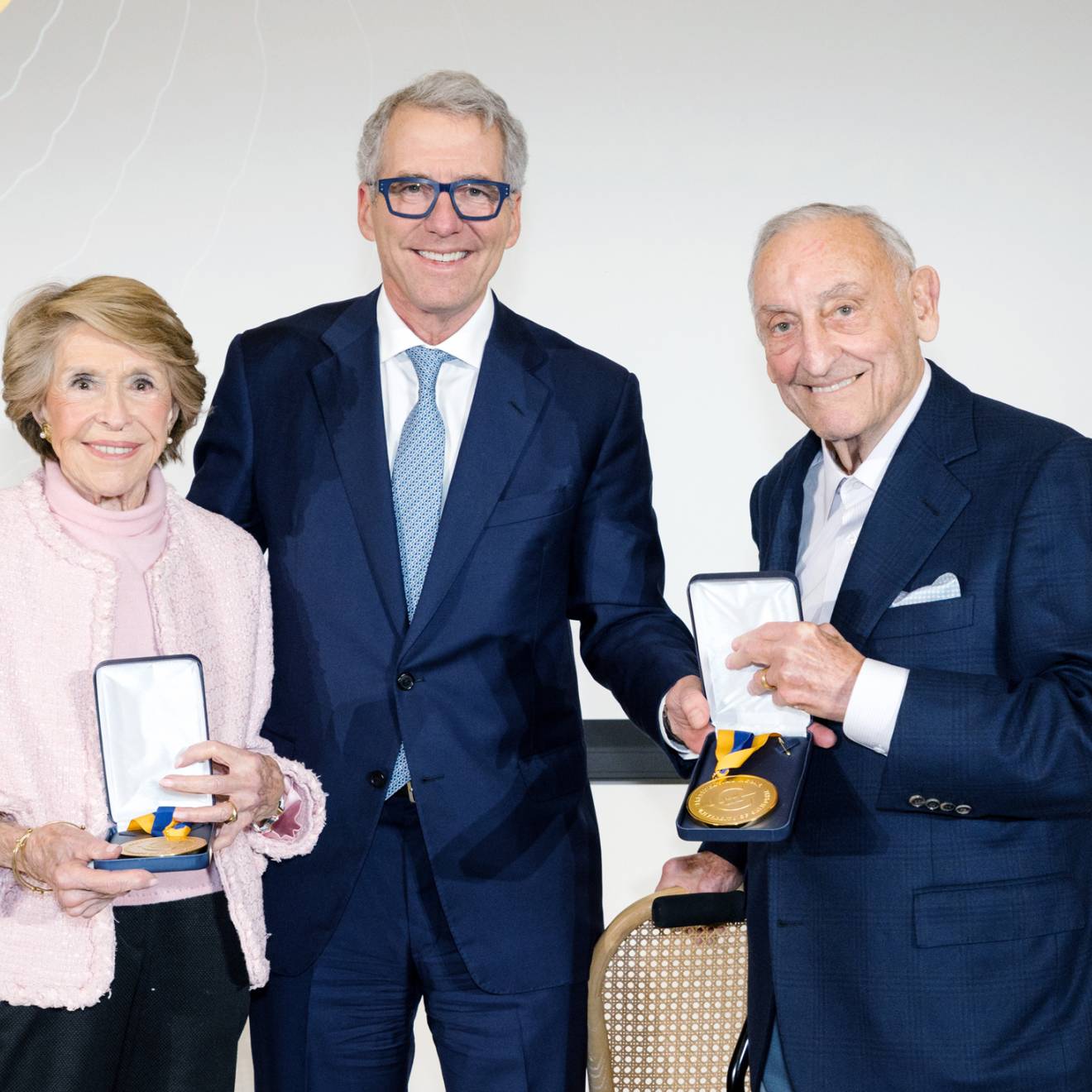Apollonia Morrill, UC Newsroom
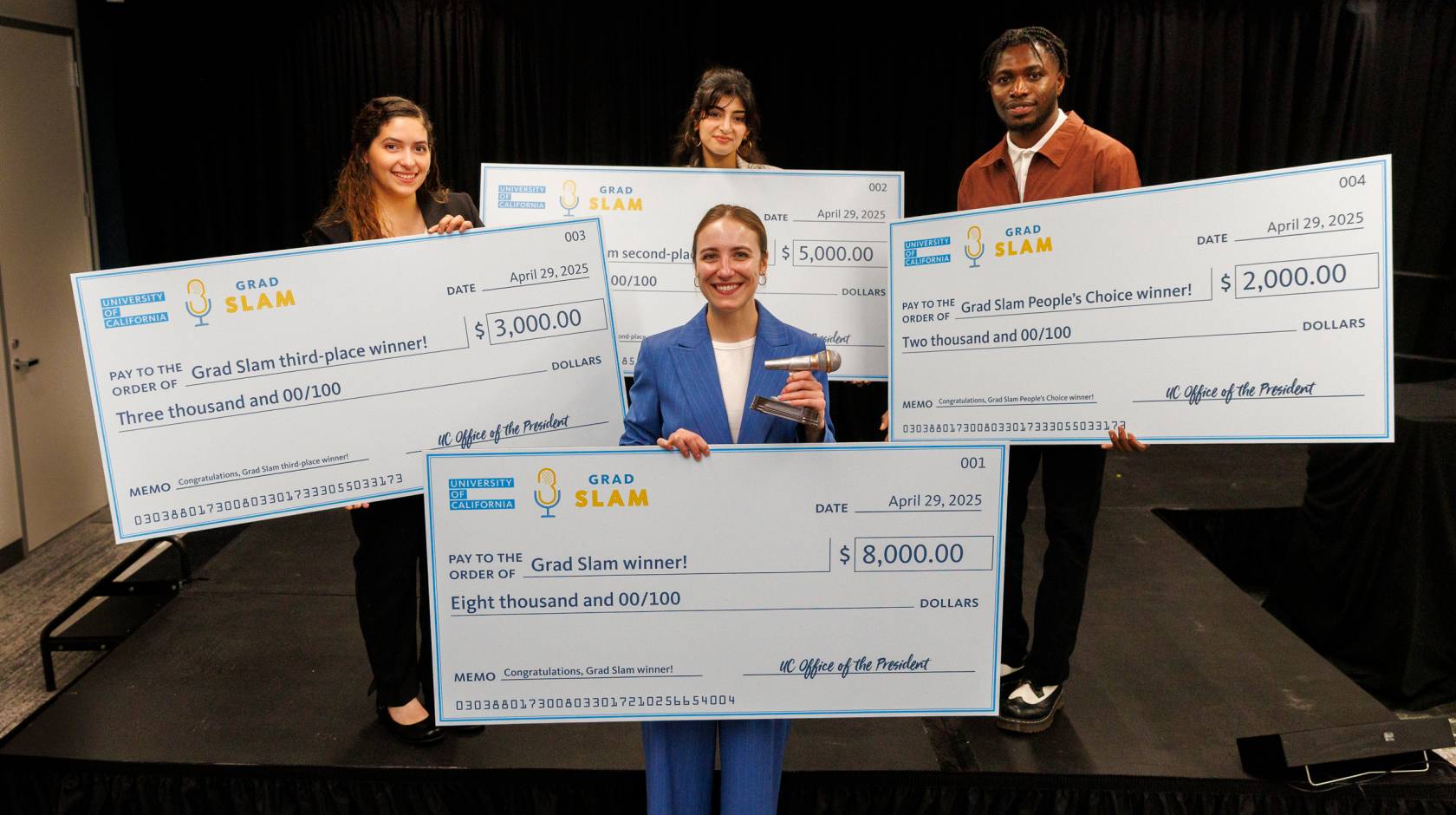
Sometimes, you win big with online dating. That was certainly the case for Sophia Miliotis at the 10th annual Grad Slam, where graduate students from across the University of California competed to explain years of complex research to a general audience in just 3 minutes.
A UC San Francisco Ph.D. student, Miliotis took home the coveted first-place “Slammy” trophy and (quite literally) a massive check for $8,000 for her talk, “Finding HIV: A swipe in the right direction.” Her research may be the key to finding the next HIV therapy, and her talk explained the science by comparing it to something less daunting: Tinder.
“HIV is a really difficult topic to talk about,” Miliotis said after her win. “Because we have antiretroviral therapy to prolong the lives of those living with HIV, I think most people don't realize that it’s still a huge problem in the world.” Miliotis found an entry point she thought might resonate widely, especially with fellow Millennials: Tinder. Her talk compared the way the immune system scans for viruses to a dating app algorithm.
The second and third-place winners and the “People’s Choice” audience favorite also nabbed some sizable checks. UC President Michael V. Drake, M.D., emceed the talks and bestowed prizes.
The contestants had been honing their communications chops for months. Back in the fall, Grad Slam participants across UC’s 10 campuses began to practice distilling their work in quick and compelling, 180-second TED-style presentations that bring high-level ideas down to earth. Campus competitions produced 10 champions, who convened on April 29 at the UC Student and Policy Center in Sacramento for the final matchup.
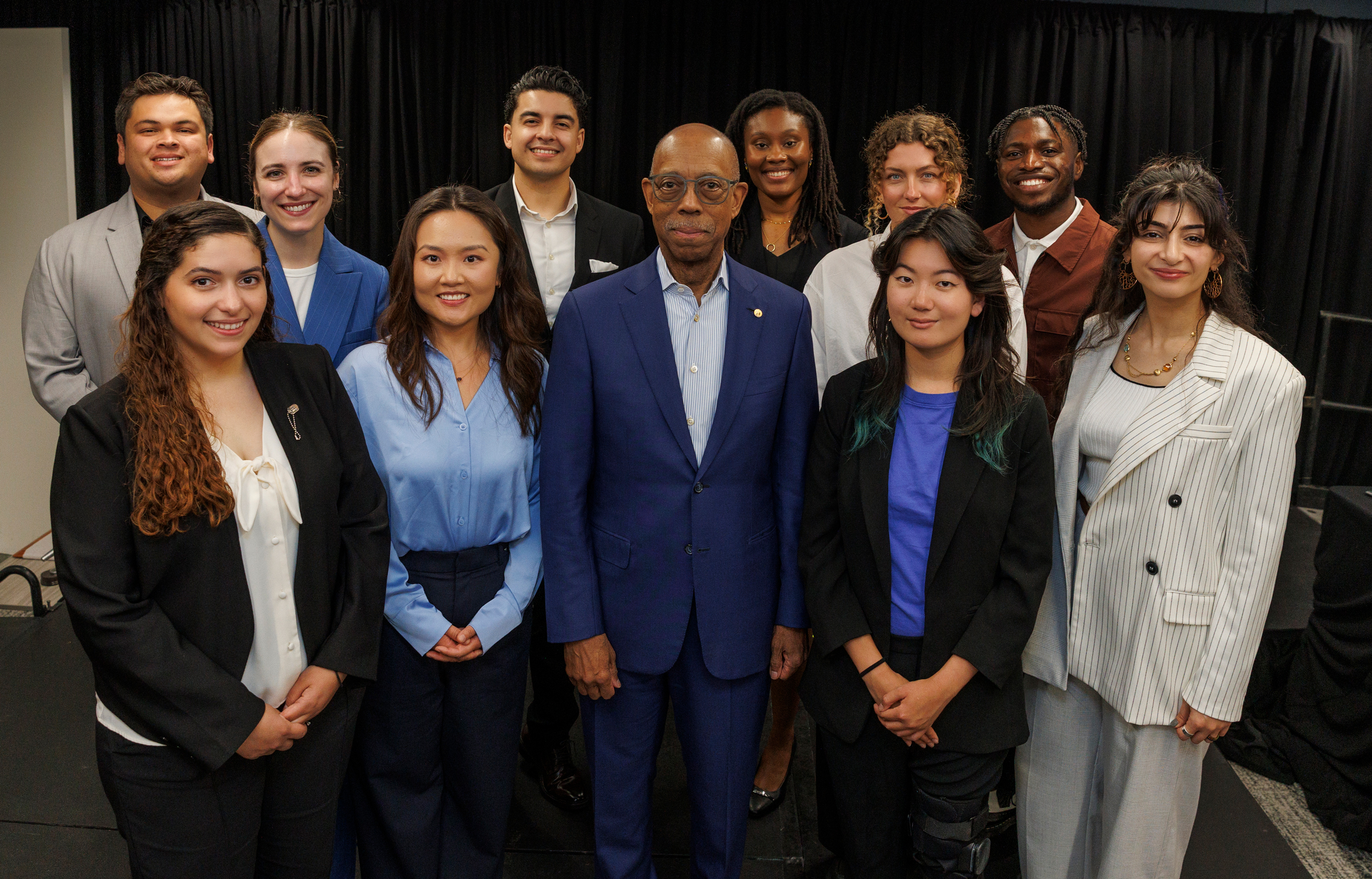
Finding new ways to explain their research
An unexpected analogy like online dating can be a helpful tool in opening understanding of technical scientific ideas for a general audience. People’s Choice winner Adekunle Adewole took a similar tack. His research could spur new ways to deliver medical treatments like chemotherapy without damaging side effects. He is developing a new way to target delivery of drugs for cancer and other diseases by enclosing them in peptide “cages” that can “zip” and “unzip” from specific targets in the body. The process uses chemistry to retool peptides from one dimension to two dimensions, so they can more easily zip onto a three-dimensional drug cage. Adewole compares it to making clothing — weaving thread into cloth, sewing cloth into a jacket, and finally putting a zipper on that jacket to open and close it.
“I assumed everybody would understand how you go from one dimension to two and three,” he says. But in early versions of his talk, people didn’t get it. “I realized I had to think of a more creative way to explain it. My mom is a seamstress, so I've been around thread and fabric all my life. I thought, wait, I can explain it this way, where thread is the single line, fabric is 2D, and the jacket is 3D.”
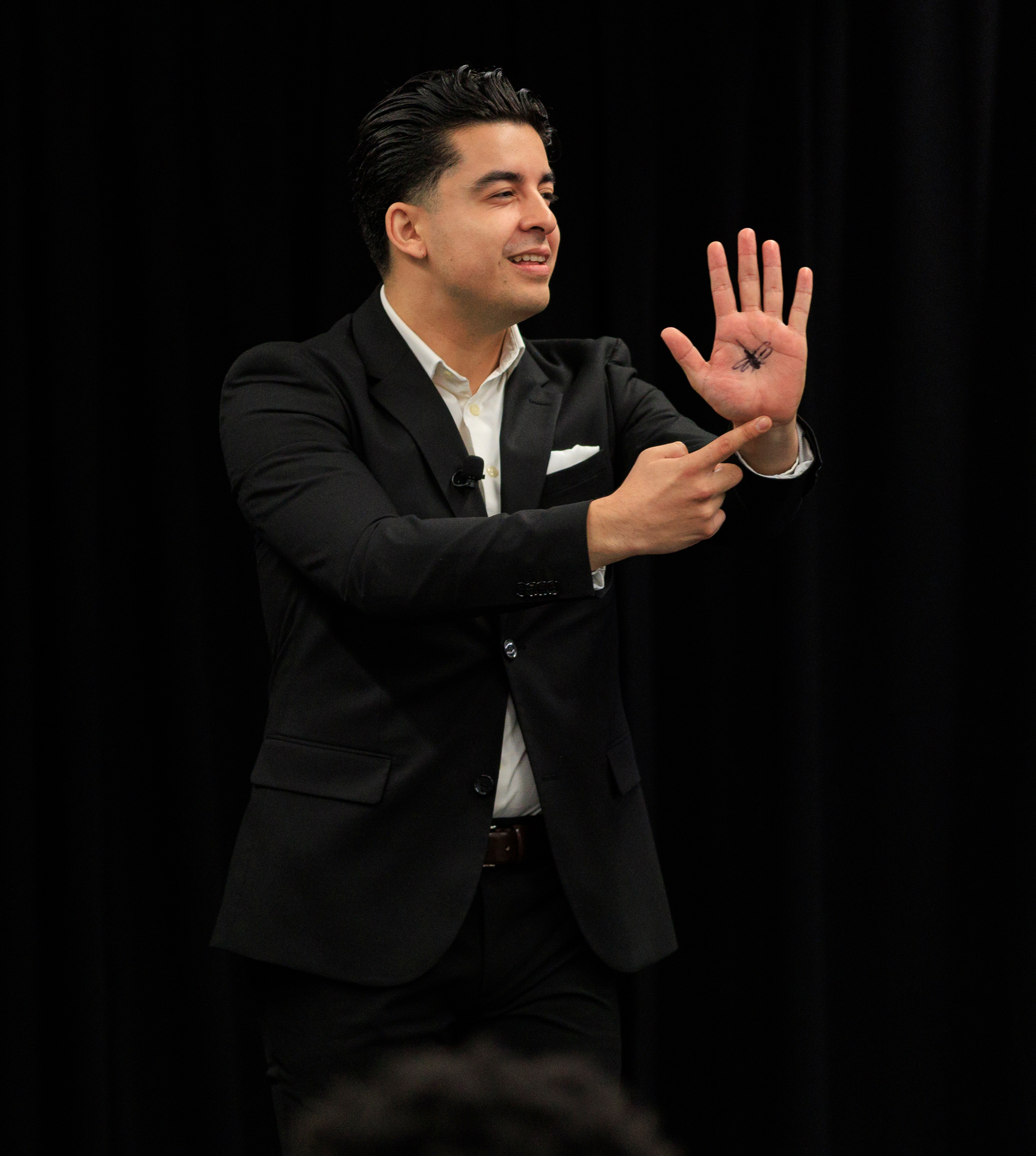
UCLA campus champion Pablo Alvarez wipes out a (fake) mosquito, saving the audience from the world’s deadliest animal in his Grad Slam talk.
Reinvigorating their work
Beyond the lure of a prize, Grad Slam participants build their networks and hone communication skills that make it easier to land jobs, get funding and — perhaps most importantly — demystify science and research for the public. Another benefit: the process of explaining the overarching goals of their research and why they matter often gives their work new focus and energy.
“You can definitely get lost in the details when you’re in the trenches of your research, for example looking at one small protein of one cell type with another small protein of a virus,” said UCLA champion Pablo Alvarez, who is researching how to stop deadly viruses like Zika from infecting the brain. “You can start to think, ‘Why am I even doing this?’ Doing Grad Slam helps you see the big picture of what your research is about. At the end of the day, it makes you more excited about what you are doing.”
Angeliz Vargas Casillas from UC Riverside, who won third prize for her talk on using math to model keloid scar expansion, reflected, “It really made me think about where I'm going with my research. Where can I take it? What is the goal? You have those things in mind, but when you’re putting it together to share with other people, it really sinks in that this is something you can keep going with.”
Connecting the dots: How graduate research fuels innovation
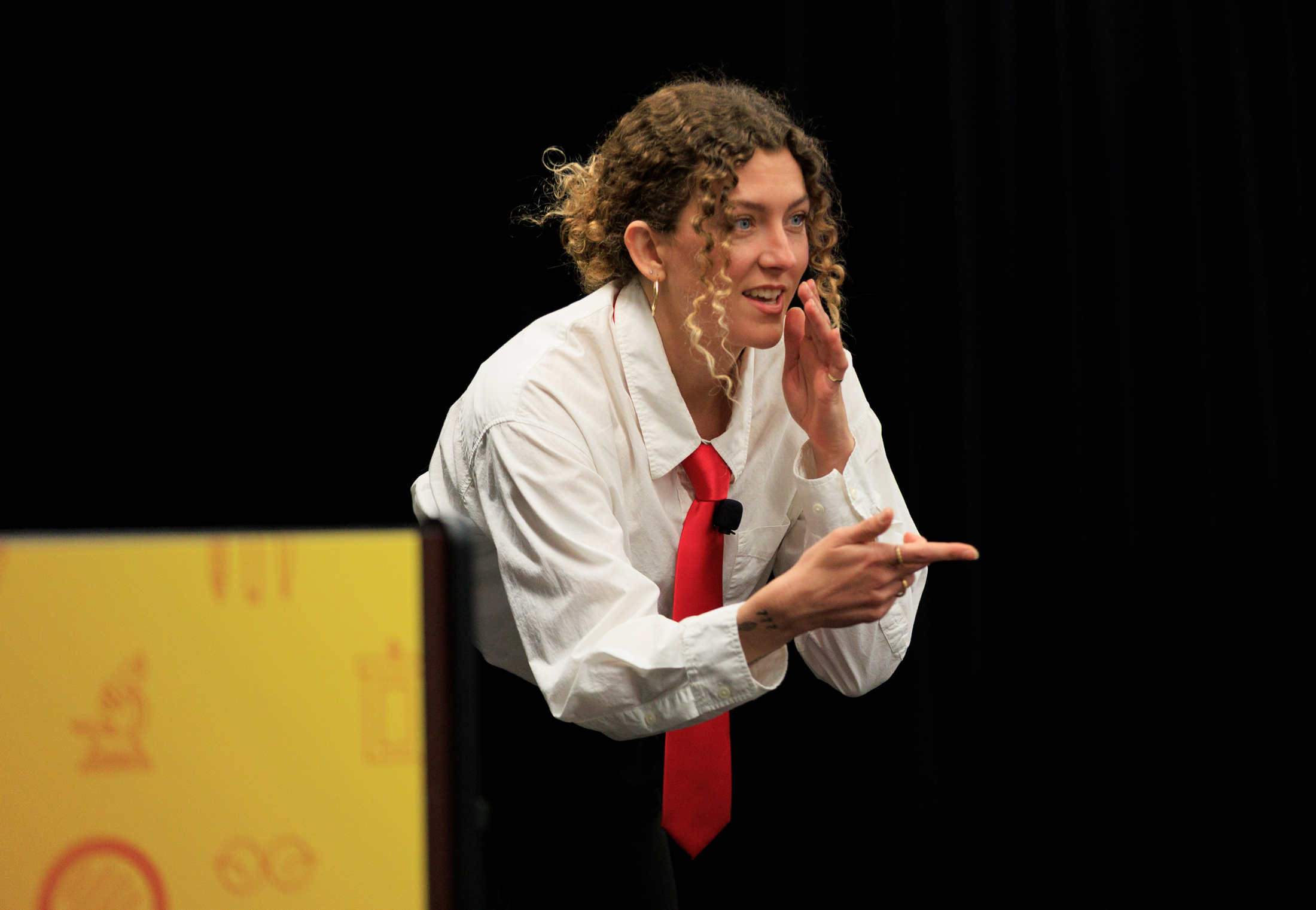
The competition may have coalesced around 10 individuals, but ultimately Grad Slam is about the groundbreaking research happening across the UC system and the more than 63,000 graduate students who power it, giving the public a window onto how that work affects our lives and why it matters.
UC Provost Katherine Newman introduced the event, saying “UC’s role in training the next generation of researchers is a centerpiece of our academic mission. We produce highly skilled, analytic, extraordinarily insightful professionals, and they help to drive the modern economy of California and help to shape the whole world in countless ways.”
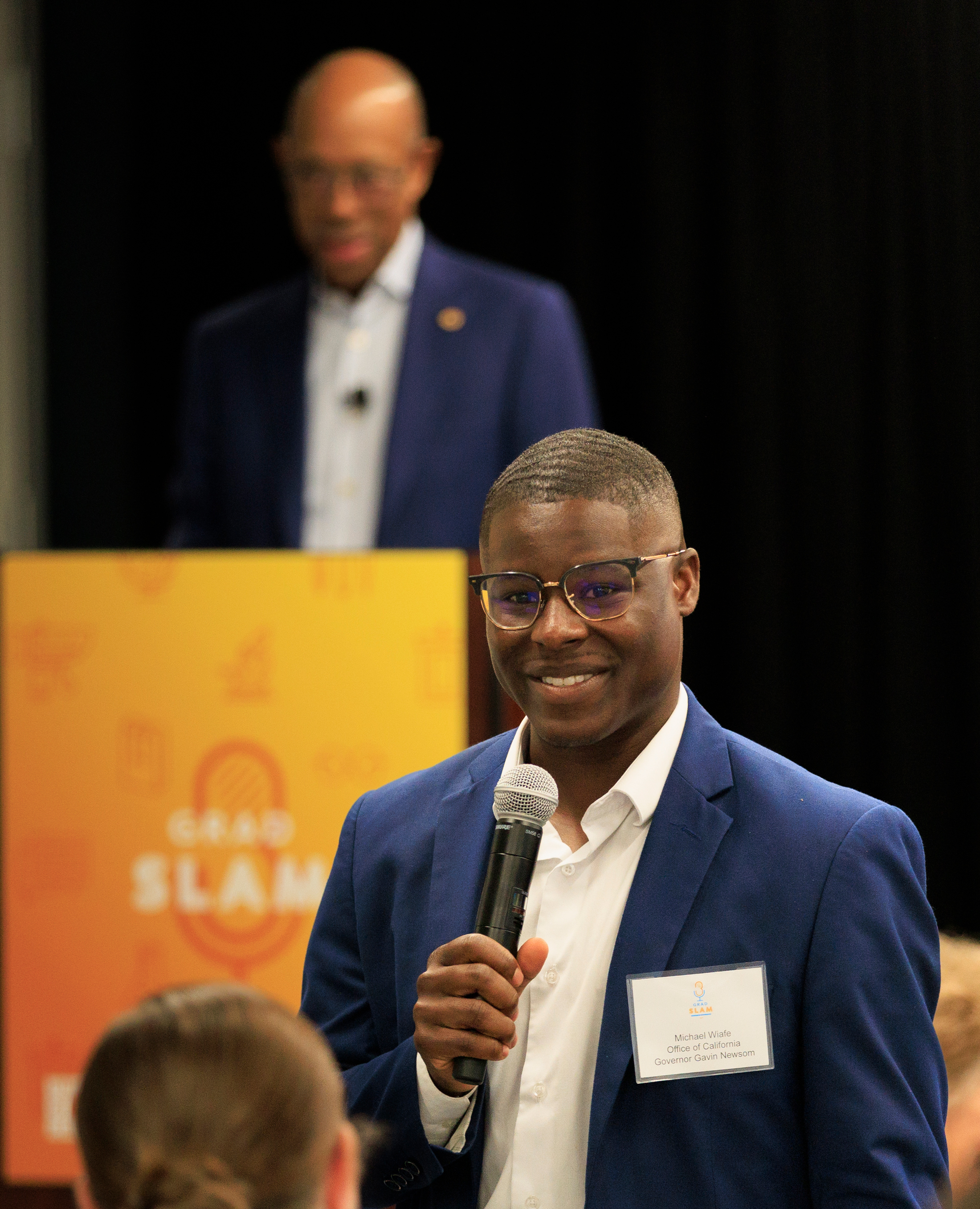
Michael Wiafe, assistant deputy cabinet secretary in the office of Governor Gavin Newsom, served on the panel of 2025 Grad Slam judges.
In addition to the graduate student presentations, this year’s event also included a panel discussion, “Keeping California a world leader: The role of UC innovation,” featuring Samuel Assefa, director of the California Governor’s Office of Land Use and Climate Innovation; retired California state senator and assemblymember Bill Dodd; Lisa García Bedolla, vice provost for graduate studies, Hitchcock Dean of the Graduate Division and Chancellor’s Professor in the School of Education at UC Berkeley; and Gillian Wilson, vice chancellor for research, innovation and economic development and a professor of physics at UC Merced. The timely conversation on the value of research was moderated by Yvette Gullatt, UC vice president for graduate and undergraduate affairs, and vice provost for equity, diversity and inclusion.
“You run into research every day and you don't even know it,” reflected panelist Lisa García Bedolla. “You’re touching it when you open your phone, you’re enjoying it when you’re on YouTube, you’re appreciating it in your doctor’s office. The teacher in your school, the nurse in your hospital, those are people who benefited from being part of the research community in order to make people’s lives better.”
Kathleen Fullerton, UC associate vice president for state governmental relations, also spoke on the importance of government and higher ed research collaborations that spur innovation and improve the lives of all Californians.
Grad Slam talks are judged on the spot according to six criteria, including clarity, delivery and engagement. This year’s distinguished panel of judges included Ahmet Palazoglu, vice-chair of the UC Academic Senate and a distinguished professor of chemical engineering at UC Davis; UC Board of Regents Chair Janet Reilly; journalist Laurel Rosenhall of The New York Times; Michael Wiafe, assistant deputy cabinet secretary in the office of Governor Gavin Newsom, and Riley Johnson, a sophomore at C.K. McClatchy High School in Sacramento. Audience members in person and online also cast their votes for the People’s Choice award.
As the event wrapped up, Sophia Miliotis had a message for other graduate students considering participating in next year’s Grad Slam: “It seems really scary to put yourself out there, to distill your research down into such a short amount of time. But I say go for it. It’s a chance to step back from your day-to-day life in the lab and your academic goals like publishing or getting a postdoc. Science communication is so important, especially in today’s environment — take advantage of this opportunity if you can.”
